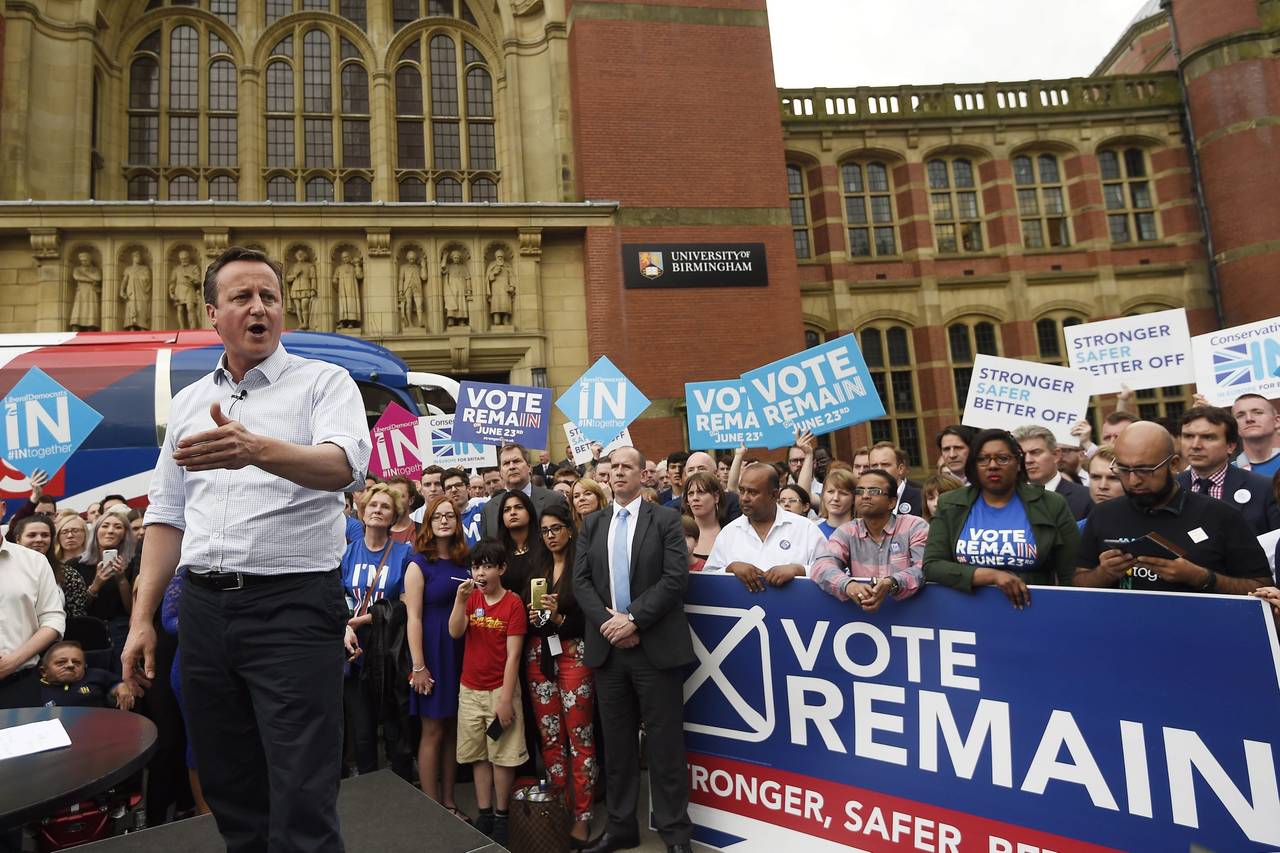June, 23, 2016

A vote for the U.K. to leave the EU would take stocks, bonds and currencies on a wild ride
The ramifications of the U.K.’s referendum Thursday on European Union membership will spill through Britain’s politics, Europe’s brittle economy and the world’s restive financial markets.
A frenzy of recent polls has ping-ponged a tiny lead between the Remain and Leave camps—two points here, three points there, a point here. The last volley of polls Wednesday gave a mixed verdict—some for Leave but one with an eight-point edge for Remain. Betting markets, bookies and traders still lean toward Remain.
A Remain vote would, in most respects, be a return to the status quo: Britain, one of the strongest European economies, would be unburdened by uncertainty about its long-term future. Prime Minister David Cameron would carry on for a term that lasts four more years. Financial markets would return to focusing on the pace of interest-rate rises in the U.S., growth in China and the price of oil. With investors now holding lots of cash, it could just be the dose of confidence needed to lift U.S. stocks.
The Leave camp believes an exit would benefit Britain in the long term. But investors, economists and analysts say in the short term it would take the world’s stocks, bonds and currencies—especially the British pound—on a wild ride. They are braced for changes to the price of gold, to the Swiss franc, to Japanese monetary policy.
“It may be a decision that is being made by folks locally to determine their future…but it has an impact on the rest of the world,” said Tom Manning, chief executive at F.L. Putnam Investment Management.
While the magnitude of the market reaction is uncertain, the direction appears clear: If Britain votes to leave, investors will rush to safety and precipitate a steep move in global markets on Friday from risky assets to havens.
- The Wall Street Journal
Video Story